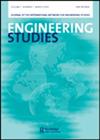工程经理:这个职业的构成要素
IF 1.3
3区 工程技术
Q2 EDUCATION, SCIENTIFIC DISCIPLINES
引用次数: 1
摘要
摘要本文以358名工程管理专业学生和195名工程管理人员为样本,采用特设问卷调查,考察了职业道德作为塞尔维亚工程管理职业构成要素的重要性。研究结果表明,在塞尔维亚,职业道德是构成这一相对年轻的职业的一个重要因素。本文章由计算机程序翻译,如有差异,请以英文原文为准。
Engineering Manager: Constitutive Elements of this Profession
ABSTRACT With a sample of 358 students of engineering management and 195 engineering managers, using an ad hoc questionnaire, the paper examines the importance of professional ethics as a constitutive element of the engineering management profession in Serbia. The results indicate that professional ethics is an essential element of constituting this relatively young profession in Serbia.
求助全文
通过发布文献求助,成功后即可免费获取论文全文。
去求助
来源期刊

Engineering Studies
ENGINEERING, MULTIDISCIPLINARY-HISTORY & PHILOSOPHY OF SCIENCE
CiteScore
3.60
自引率
17.60%
发文量
12
审稿时长
>12 weeks
期刊介绍:
Engineering Studies is an interdisciplinary, international journal devoted to the scholarly study of engineers and engineering. Its mission is threefold:
1. to advance critical analysis in historical, social, cultural, political, philosophical, rhetorical, and organizational studies of engineers and engineering;
2. to help build and serve diverse communities of researchers interested in engineering studies;
3. to link scholarly work in engineering studies with broader discussions and debates about engineering education, research, practice, policy, and representation.
The editors of Engineering Studies are interested in papers that consider the following questions:
• How does this paper enhance critical understanding of engineers or engineering?
• What are the relationships among the technical and nontechnical dimensions of engineering practices, and how do these relationships change over time and from place to place?
 求助内容:
求助内容: 应助结果提醒方式:
应助结果提醒方式:


